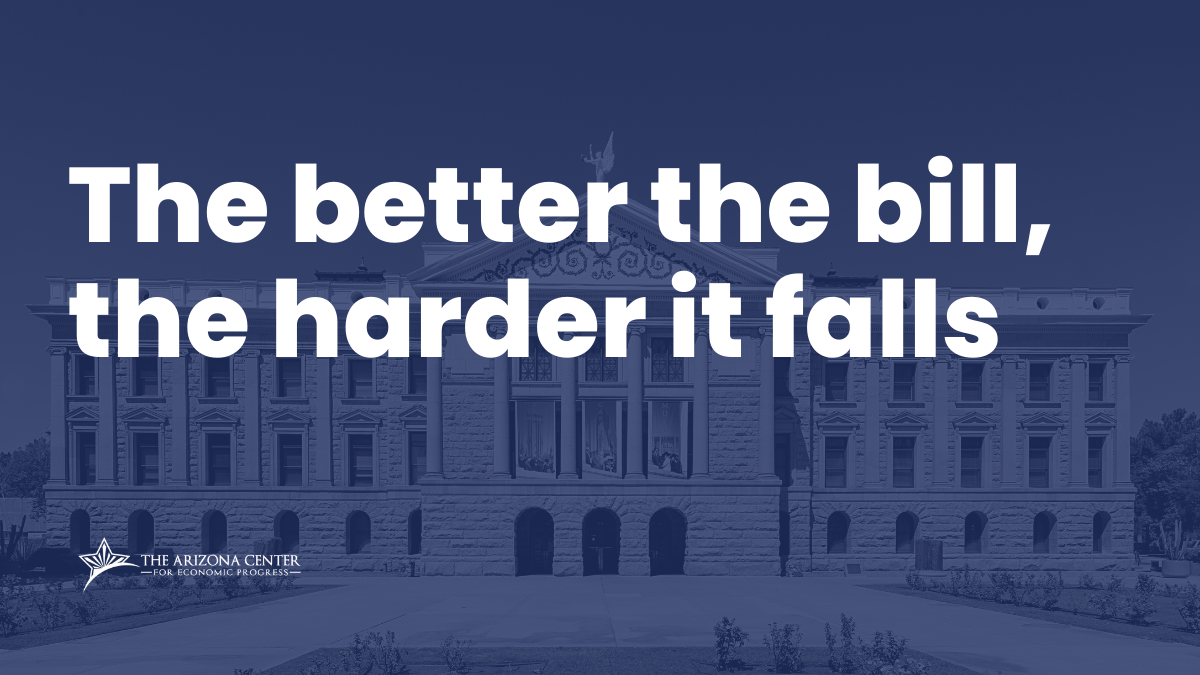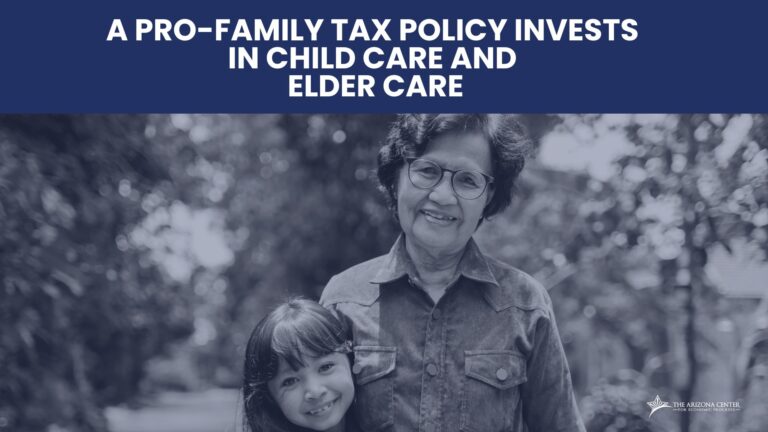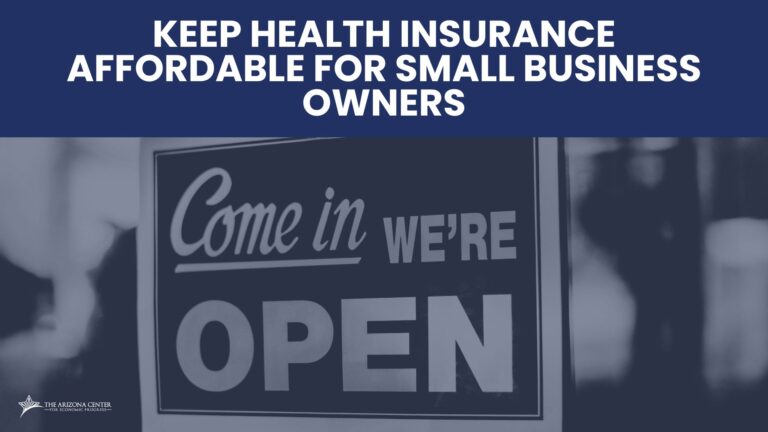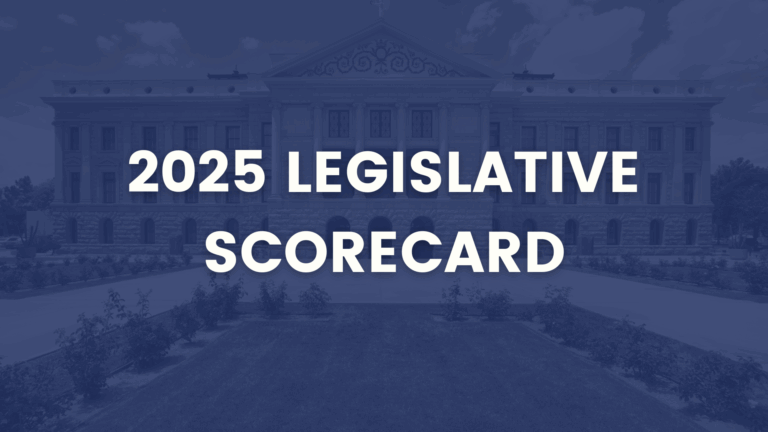
The better the bill, the harder it falls
This year, state lawmakers in Arizona introduced nearly 1700 pieces of legislation. Committee chairs, using their power through rules and deadlines, select which bills receive a hearing for consideration. Every year many promising, important, and popular proposals fail to receive a hearing or committee vote during the legislative session.
Last month was the deadline for bills to be heard in committee. While hearing every single bill is not feasible, there are many good proposals that deserve recognition and merit consideration for future legislative action. Here are some of Arizona Center for Economic Progress’ top picks:
- Permanently Fix the Public Education Spending Limit SCR1023/ HCR2012 (sponsored by Senator Marsh and Representative Pawlik)- The aggregate expenditure limit is a growing problem that needs a long-term solution. The limit is based on education spending in the 1980s – before personal computers, the emphasis on STEM education, concerns about school safety, teacher shortages, and increased spending for special education students. Today, it threatens Arizona’s ability to make the investments needed to increase its per-student funding ranking above 48th.
- Improving Transparency and Accountability for Tax Credits SB1400 (sponsored by Senator Bowie) – Most income tax credits in the state are required by statute to be reviewed by the Joint Legislative Income Tax Credit Review Committee (JLITCRC) every 5 years. JLITCRC is charged with evaluating the tax credits and determining whether they are delivering on the promised benefit to the state. This includes submitting a report to the full legislature by December 15 on whether each of the tax credits reviewed should be retained, repealed, or amended. This bill would establish that any new individual or corporate income tax credit enacted be required to have a specific repeal date and direct legislative council staff to prepare legislation for repeal or amendment based on the recommendations of the committee.
- Accountability for All Tax Expenditures HB2775 (sponsored by Representative Epstein) – This bill renames the Joint Legislative Income Tax Credit Review Committee to the Joint Legislative Tax Expenditure Review Committee and expands the role of the committee from evaluating only tax credits to including all tax expenditures, such as exemptions, exclusions, subtractions, credits and preferential rates. This bill requires the committee to ensure Arizonans are receiving their return on investments regarding all tax expenditures.
- Corporations Should Pay Their Fair Share SB1106 (sponsored by Senator Mendez)– 71.5 percent of Arizona corporations paid the minimum tax of $50 in 2018. This bill increases the minimum corporate income tax to $1,000, strengthening the state’s corporate income tax.
- Protecting State Revenue HCR2016 (sponsored by Representative Epstein)– This bill was a ballot referral for the 2022 general election. The bill allows voters to amend the state constitution by requiring a 2/3 majority vote in the legislature to enact any bills that lead to a net decrease in state revenues. A supermajority requirement requires legislators to reach a broader consensus when they seek to decrease state revenue and long-term investments.
- Increase State Revenue Sharing with Tribal Communities HB2715 (sponsored by Representative Blackwater-Nygren) – This bill establishes a state transaction privilege tax (TPT) revenue sharing agreement with Tribal Nations, requiring the Department of Revenue to distribute 25 percent of TPT resources collected on reservation to tribal infrastructure and economic development through grants up to $1 million. In FY 2020, $57 million TPT revenues were collected on tribal lands, and yet the state only shared $2.5 million with some tribal nations. This bill creates a guaranteed revenue stream and includes tribal nations in TPT revenue sharing agreements.
- Adjusting the School Funding Formula for Students in Poverty SB1244 (sponsored by Senator Marsh)– This bill allocates additional dollars for improving outcomes for low-income students by integrating a funding weight for poverty into the existing school base support level funding formula. This bill establishes a weighted student count of 0.075 to 0.250 for students who meet the economic eligibility requirements for free- or reduced-price lunches (FRPL). To date, over 40 states supplement their base funding with a weighted measure to accommodate the unique challenges for students experiencing poverty.
- Improve Access to Cash Assistance for Low-Income Families SB1623/HB2797 (sponsored by Senator Rios and Representative Powers Hannley) – These bills would improve access to and the adequacy of cash assistance in Arizona through the Temporary Assistance for Needy Families (TANF) program. These bills restore eligibility to pregnant people without other children and kinship caregivers, repeals the ban on drug felons from participating in the program, sets the minimum monthly benefit as a percentage of the federal poverty level adjusted for family size and other factors, and increases the time limit for participation.
- Allow Local Governments to Establish Rent Controls SB1586/HB2401 (sponsored by Senator Quezada and Representative Solorio) – These bills repeal the state pre-emption for Arizona counties, cities, and towns to establish rent control. With rental prices dramatically increasing in cities like Phoenix, Tucson, and Flagstaff, these bills would allow those cities to consider rent control ordinances.
- Paid Family and Medical Leave for Arizonans SB1644/HB2767 (sponsored by Senator Terán and Representative Salman) – These bills would establish a statewide Paid Family and Medical Leave (PFML) social insurance program for workers in Arizona, where participants would qualify for up to 26 weeks of leave to care for themselves, a new child, or a family member with a serious health condition. Financed together, by both employers and employees, the program is designed to extend access to PFML to more workers. These bills also include an option for self-employed individuals to opt-in to the program.
This list is not exhaustive.
Although these bills were not given a committee hearing this session, these bills help Arizona improve transparency in our tax code, strengthen the state’s fiscal health, and invest in Arizonans struggling to recover from the pandemic.
The Arizona Center for Economic Progress is committed to uplifting solutions and strong policies that build a better future for all Arizonans. For more insights throughout session, be sure to follow @AzEconCenter on Twitter and sign up for our newsletter.



